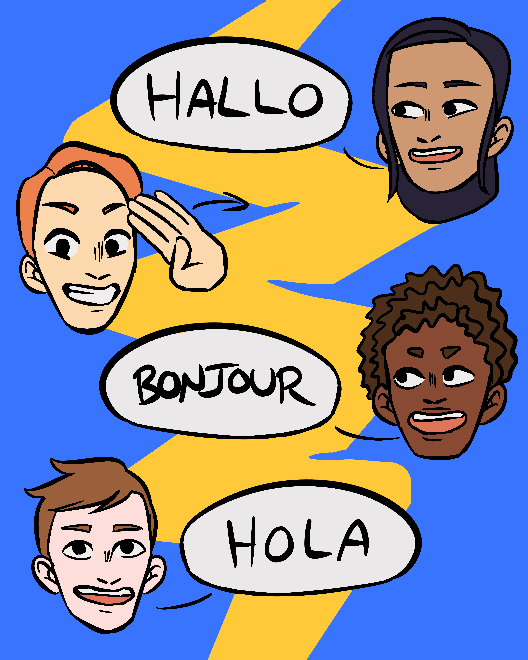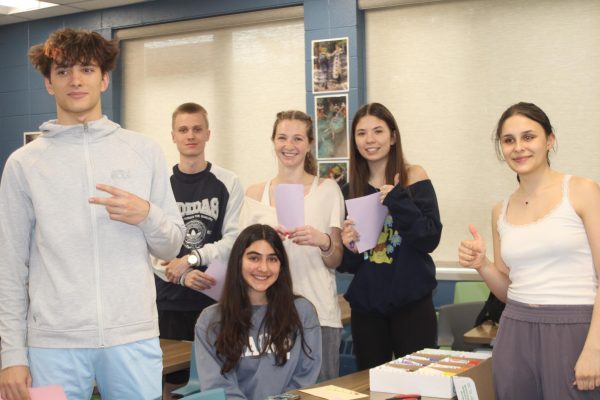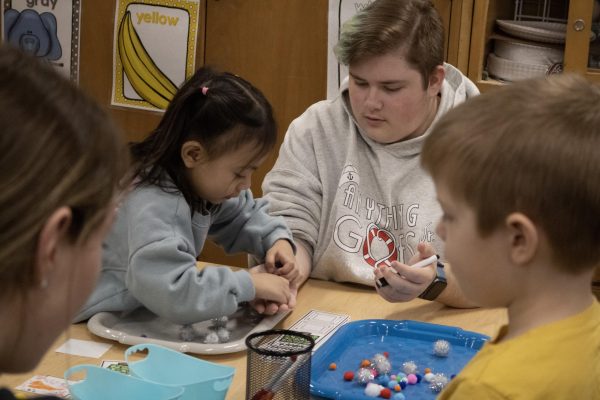Seal of Biliteracy opens up new cultures, communities for South students
November 20, 2020
Language students spend hours in classrooms stumbling through vocabulary and trying to understand countless articles. Some students strive to achieve the Seal of Biliteracy which, Danita Fitch, World Languages Department instructional supervisor, can testify, is no easy feat.
The Seal of Biliteracy is the recognition that a student has reached a certain proficiency level in a language other than English, Fitch explained. A student’s proficiency is tested in skills such as reading, writing, listening and speaking. This seal appears on the student’s transcript and diploma.
“Just because somebody has [taken] four years of language doesn’t mean that they can use it,” Fitch said. “By using these standardized assessments, [we can] really cover language skills.”
The language proficiency assessments provided by the Illinois State Board of Education (ISBE) are called the Assessment of Performance toward Proficiency in Languages and Standards-based Measurement of Proficiency, Finch said. It is also possible to obtain the seal through the SAT/ACT or an AP exam. However, scores are required in both the foreign language and English.
“A [high score] an AP Spanish, French [or] German language means [foreign] language qualification,” Fitch said. “We can get the English score from a SAT test [or] ACT, [but] this year, because of all the issues with Covid-19, the ISBE also approved using a student’s score on the English AP exam.”
Despite difficulties due to Covid-19 restrictions, freshman Leila Skoulikaris took the Seal of Biliteracy test for Greek. There were parts of the four-hour test that were made more strenuous because of the social distancing aspect, however, she still managed to successfully complete the test.
“I think the test was a little bit slower because of all the transitions we had to make,” Skoulikaris explained. “Normally we would be in closer rooms [and we] couldn’t use the restrooms [and] things like that, so it took a lot longer than I expected it to.”
Despite frustrations, the Seal of Biliteracy is not an empty achievement, Fitch explained. All Illinois State universities are required to give college credit for the Seal of Biliteracy. Senior Anthony Travlos, recipient of the Seal of Biliteracy in both Greek and Spanish, said the most valuable thing about learning new languages is the culture that comes with them.
“If you know a [second] language, it opens you up to a whole new world,” Travlos said. “It has a variety of benefits outside of just saying you’re biliterate.”
Earning the Seal of Biliteracy is an amazing accomplishment that is very beneficial. It connects people around the world, Travlos said.
“Knowing more languages opens you up to more people and allows you to be unified with a bunch of different communities, which I think is awesome,” Travlos said.














